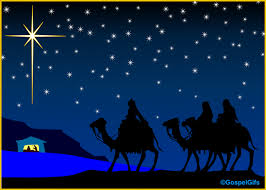Epiphany, Carnival and removal from meat

 Epiphany, the oldest festival on the Christian Church calendar, is a national holiday in at least 15 nations. Celebrations generally are related to children.
Epiphany, the oldest festival on the Christian Church calendar, is a national holiday in at least 15 nations. Celebrations generally are related to children.The name derives from the Greek word meaning appearance of a god. It commemorates the visit of the Magi, or Three Wise Men, to the baby Jesus in the stable in Bethlehem, and also His baptism as an adult. Because of the latter, many customs today have watery associations, such as the blessing of fishing fleets in harbours around the world.
In the former Yugoslavia, a cross is thrown into a body of water and young men dive after it. This ancient rite echoes even older pagan ceremonies of propitiation of gods of rivers, lakes and oceans ...
Removal from meat
The period from Epiphany (January 6), until Shrove Tuesday (Pancake Day, or Pancake Tuesday; Mardi Gras in French) is called 'carnival'. In Roman Catholic countries it is a period for amusement and revelry, hence the fairground meaning of the word. Thus, the famous 'carnival' celebrations of the Christian world (such as at New Orleans, USA, Bagolino, Italy and Rio de Janeiro, Brazil) take place at the end of the period when all foods may be eaten, and at the beginning of the period of fasting, although the weeks before Shrove Tuesday are in fact the period of carnival, or 'removal from meat'.
The word 'carnival' doesn't, as we might presume, originate in something like 'farewell (vale in Latin) flesh', though that's a reasonable assumption. It comes from the Latin carnis, flesh, and levare, to remove. Lent, when flesh may not be eaten, immediately follows Carnival. On Shrove Tuesday, people 'shrive' (confess) their sins and might eat pancakes to use up the last of the eggs and butter before the fast of Lent ... which is why the French called it Mardis Gras (Fat Tuesday) ...
Categories: folklore, christianity, religion, calendar-customs







0 Comments:
Post a Comment
<< Home